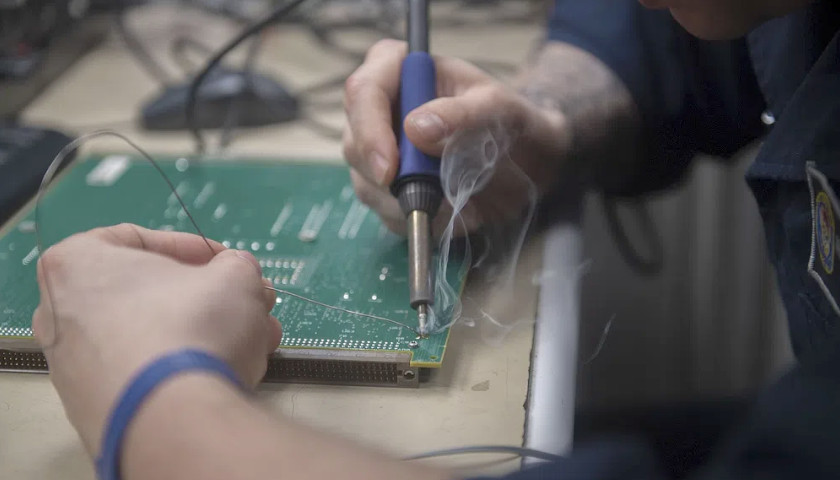by Will Kessler
A top Chinese tech company has been able to push out fresh Chinese-made semiconductors despite years of U.S. restrictions, according to Reuters.
HiSilicon, Huawei Technologies’ chip design unit, has increased delivery of semiconductors to surveillance camera manufacturers over the last year after the company was able to produce new tools to create more advanced chips in March, according to Reuters. The U.S. has put a number of sanctions on the semiconductor industry, with Huawei in particular being placed on the entity list by the Department of Commerce in 2019, prohibiting it from working with American companies.
In 2018, before the sanctions were put in place by the U.S., Huawei commanded 60% of the global market share for supplying chips to the surveillance camera sector, which plummeted to just 3.9% as of 2021, according to Reuters. The move to ramp up the production of chips for surveillance companies indicates a growing ability of China’s chip manufacturing operation, which U.S. sanctions have sought to prevent.
 The U.S. and China are in a tech war in the semiconductor industry, with both countries competing for a technological edge. China in the past has been able to leverage its access to minerals and other raw resources necessary to build computer chips, while the U.S. employs its advantage in its intellectual property rights.
The U.S. and China are in a tech war in the semiconductor industry, with both countries competing for a technological edge. China in the past has been able to leverage its access to minerals and other raw resources necessary to build computer chips, while the U.S. employs its advantage in its intellectual property rights.
HiSilicon has previously been strangled in chip manufacturing due to a lack of access to electronics design automation (EDA) software from top chip-design companies Cadence Design Systems Inc., Synopsys Inc. and Siemens AG’s Mentor Graphics following U.S. sanctions, according to Reuters.
Hedge Funds are shorting semiconductor stocks at one of the highest levels of the last 5 years according to data from Goldman Sachs pic.twitter.com/6qyzBeylvD
— Barchart (@Barchart) September 20, 2023
The Biden administration put restrictions on the semiconductor industry in October 2022, blacklisting multiple Chinese companies involved in the chip manufacturing industry in an effort to prevent China from accessing U.S. technology. In August, Biden placed further restrictions on the industry, limiting U.S. private equity and venture capital firms from directly investing in companies related to the Chinese semiconductor, quantum computing and artificial intelligence sectors.
“We don’t know if they got them illicitly, or more probably the Chinese developed their own EDA tools,” Dan Hutcheson, an analyst at TechInsights, told Reuters about HiSilcon’s EDA access following the release of the Mate 60 Pro, Huawei’s newest smartphone, according to Reuters.
The White House and Huawei did not immediately respond to a request to comment from the Daily Caller News Foundation.
– – –
Will Kessler is a reporter at Daily Caller News Foundation.








